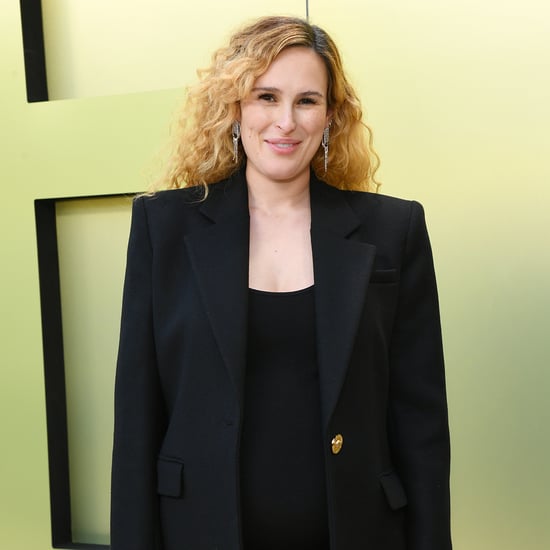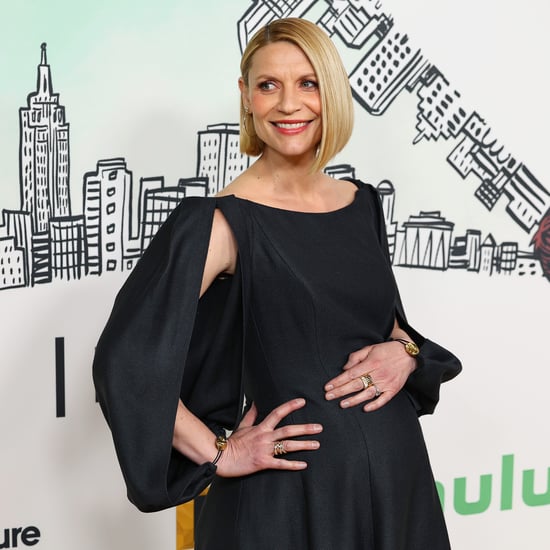Allyson Felix on Preeclampsia and Traumatic Birth Experience
Olympian Allyson Felix Has 1 Major Warning For Women Following Her Traumatic Birth Experience
Allyson Felix has more medals than any other female track and field athlete in history, but perhaps her hardest fought victory wasn't at the Olympics but in the delivery room.
Last year, the six-time Olympic gold medal winner and 11-time world champion decided to pursue a different goal: to be a mother. In a powerful New York Times essay, Allyson explained how such a natural desire to start a family felt like "the kiss of death" to her career as a professional sprinter, due to the fact that pregnancy often risks pay cuts with sponsors and she was in the midst of negotiating a renewal of her Nike contract.
Unfortunately, those negotiations didn't go well. In the op-ed, she revealed that she'd asked Nike to contractually guarantee that she wouldn't be punished if she didn't perform at her best in the months surrounding childbirth, but they declined.
Such a natural desire to start a family felt like "the kiss of death" to her career as a professional sprinter.
If that battle wasn't difficult enough, Allyson also went through a traumatic birth experience in November 2018, in which she had to undergo an emergency c-section at only 32 weeks gestation. She'd had preeclampsia, a rare pregnancy-related condition, that risked this otherwise healthy woman's life. Black women, in fact, are three to four times more likely to die from the disorder according to the Centres for Disease Control and Prevention – for no known reason.
Now, thankfully, she and her baby girl are doing well. Following weeks in the NICU, Camryn Grace is nearly nine months old and a true "fighter," according to her mom. Allyson, for her part, is back on the starting line after more than a year off from racing and has recently signed on to be the first sponsored athlete for Athleta, a female-focussed fitness clothing brand.
She spoke to PopSugar at an Athleta Supersonic event in New York about her experiences, and as for her advice? Well, you don't need to be an Olympian to understand how good – and life-saving – it is.
On women who worry they may have to give up their career – in athletics or otherwise – to start a family:
"Do not sacrifice anything. You can have it all. Don't let anyone tell you that you can't. It's all about how you feel, what's important to you and your family, the decisions that you make. I think for so long, we've been forced to feel like we have to pick career or family. That you can't have them both. And I think it's just about managing it and speaking up about things."
On what pregnant women – particularly black women – should be doing now to ensure their maternal health:
"Well, No. 1 is to be aware, to know that you are at risk. To be prepared to advocate for yourself. If anything feels wrong, if you're confused, if someone is trying to force you into something that you're not comfortable with, speak up. Don't be intimidated by being in a doctor's office or being in unfamiliar circumstances. You have to do something – call someone in, anything. And then have a plan in place if things do go south. For me, it wasn't on my radar at all, so when I got thrown into an emergency situation, I felt like I wasn't prepared. I didn't know what to ask. Everything happened so quickly, and I just wish that I had a plan just in case."
On what she wishes she knew before her otherwise healthy pregnancy turned into a terrifying labour:
"The biggest thing was, to be ready for anything. I had this complete birth plan planned out, and everyone says, too, when you do that, it never goes that way. And I wanted to have a natural birth. I was doing hypnobirthing. I was doing all this stuff, and I was so excited and ready. And I was crushed when I didn't get that experience. But just be open. Birth is such a beautiful thing. Be open to whichever way it might go."
Additional reporting by Christina Stiehl






